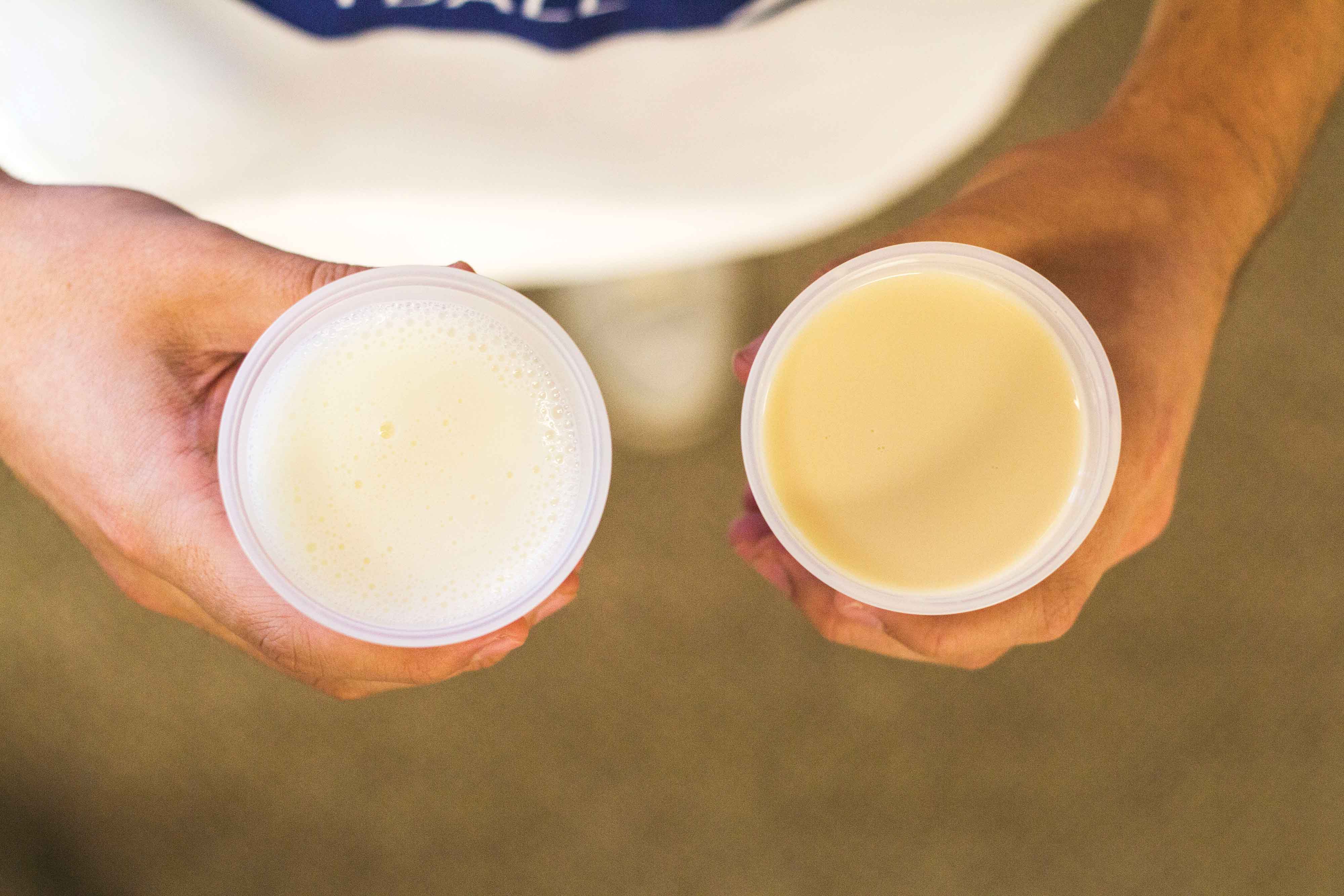
Plant-based milks, such as soy milk (on the right), as opposed to true mammal’s milk (on the left) are made by soaking nuts, grains, or seeds. Jonathan Logerstedt | Banner
Alternative cow’s milk products are flooding grocery stores across America. Although the products are growing in popularity, most are unaware of their unique benefits.
While all of these products are advertised as milk, the only true milk is mammal’s milk. Plant-based milks are first made by soaking nuts, grains or seeds in water and then blending. More water is then added after the nuts, grains or seeds have been blended.
Singh Harris, sales associate at Clark’s Nutrition and Foods Market, explained that plant-based milks are mostly made for taste, vegetarians, people with allergies, or allergies to the way cow’s milk is processed. However, plant-based milk does not always provide the protein, calcium and amino acids the body needs.
“For basic health elements, a person would have to add something to plant-based milk,” Harris said. “Any kind of plant-based milk would have to be in some diluted form.”
While plant-based milk may not contain certain elements consumers may desire, it does offer other health benefits.
Harris said rice milk is a good alternative for people with allergies as he has not met anyone yet who was unable to digest it.
“It has a notifying effect on the central nervous system and provides the body with amino acids that (the body) cannot naturally produce,” Harris said.
He also recommended drinking coconut milk because it controls bacteria and is anti-inflammatory.
“I consider coconut a heart food,” Harris said.
Gabriela Lumagui, junior biology major, said she drinks soy milk because she grew up in a vegan home.
“I like both of these because they do not feel thick or have the same texture as regular milk when I drink it,” Lumagui said.
She said she drinks soy milk because of the taste, but soy milk does not make her feel any better than she would feel drinking cow’s milk.


